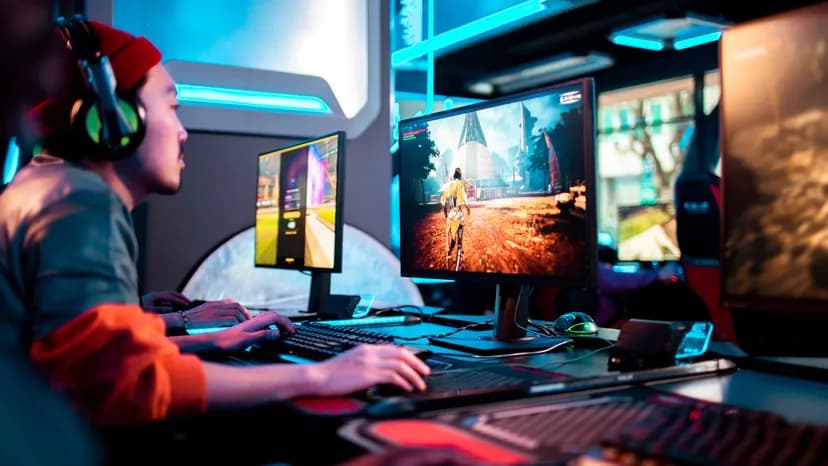The realm of video games is a constantly evolving landscape, with each new year ushering in a wave of technological advancements that push the boundaries of what we thought possible. As we look ahead, several groundbreaking innovations are poised to redefine gaming experiences, making them more immersive, interactive, and engaging than ever before. This article explores some of the most anticipated technological innovations in games, highlighting how they’re set to change the way we play and interact within virtual worlds.
Virtual Reality (VR) 2.0
Virtual Reality has been a buzzword in the gaming industry for several years, but we’re on the cusp of experiencing VR 2.0 – a new generation of virtual reality technology that promises unparalleled immersion. With advancements in display resolutions, refresh rates, and field-of-view, VR headsets are becoming more comfortable and less prone to causing motion sickness. Moreover, innovations such as haptic feedback suits and gloves are enhancing physical immersion, allowing players to feel virtual objects and environmental effects, from the brush of wind to the impact of a sword strike.
Augmented Reality (AR) Gaming
While VR immerses you in a completely virtual world, Augmented Reality (AR) brings virtual elements into our real-world surroundings. AR gaming is set to leap forward with more sophisticated mobile devices and AR glasses, offering gamers the ability to interact with game elements superimposed on their physical environment. This technology not only opens up new gameplay possibilities but also encourages physical movement and social interaction in the real world.
Cloud Gaming and Game Streaming Services
Cloud gaming is transforming the gaming industry by allowing players to stream games directly from servers to their devices, bypassing the need for powerful hardware. This technology democratizes access to high-end gaming experiences, making them available on less powerful devices such as smartphones, tablets, and budget PCs. As internet speeds and cloud infrastructure continue to improve, we can expect smoother streaming, lower latency, and higher quality visuals, making cloud gaming indistinguishable from playing on a high-end gaming console or PC.
Artificial Intelligence (AI) in Game Development and Gameplay
AI is revolutionizing game development and gameplay in several ways. Procedural content generation, powered by AI, enables the creation of vast, dynamic, and unique game worlds, ensuring that no two playthroughs are the same. AI-driven non-player characters (NPCs) are becoming more intelligent and adaptable, capable of complex interactions and behaviors that provide a more realistic and challenging gaming experience. Additionally, AI is being used to optimize game development workflows, reducing the time and resources needed to create high-quality games.
Cross-Platform Play and Progression
The barriers between different gaming platforms are continuing to erode, thanks to the growing support for cross-platform play and progression. This innovation allows gamers to play with friends regardless of the platform they own and carry their game progress and purchases across PC, consoles, and mobile devices. It fosters a more unified and inclusive gaming community, ensuring that players remain engaged with their favorite games no matter the platform.

5G Connectivity
The rollout of 5G networks is set to significantly impact mobile gaming and cloud gaming services. With its promise of faster download and upload speeds, lower latency, and more reliable connections, 5G will enable more complex and demanding games to be played smoothly on mobile devices. It will also improve the performance of cloud gaming services, making real-time, competitive gaming viable on a wider range of devices and in more geographical locations.
Blockchain and NFTs in Gaming
Blockchain technology and Non-Fungible Tokens (NFTs) are beginning to find their place in the gaming world, offering new ways to own, trade, and monetize in-game assets. Players can have true ownership of unique in-game items, characters, or even land, which can be bought, sold, or traded on blockchain marketplaces. This innovation not only opens up new economic models for game developers but also provides players with tangible value for their in-game achievements and investments.
Conclusion
The future of gaming is bright, with technological innovations set to provide more immersive, interactive, and accessible experiences. From the depths of virtual realities to the augmented landscapes of our physical world, the boundaries of gaming continue to expand. As we embrace cloud gaming, AI, cross-platform play, and the potential of blockchain, the games we play and the ways we play them are evolving in exciting ways. These advancements promise not only to transform the gaming industry but also to redefine our very understanding of what it means to play.